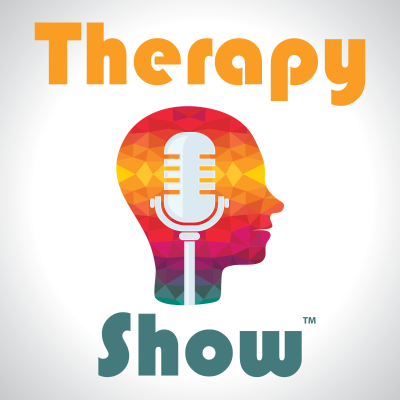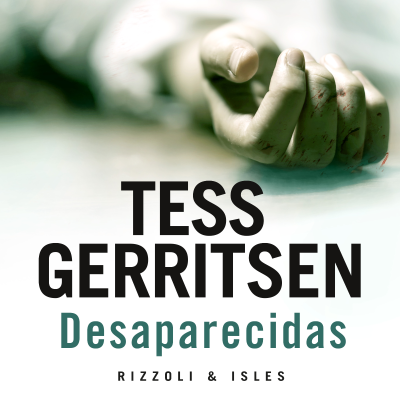
Therapy Show
Podcast de Host Dr. Bridget Nash
Disfruta 30 días gratis
4,99 € / mes después de la prueba.Cancela cuando quieras.

Más de 1 millón de oyentes
Podimo te va a encantar, y no sólo a ti
Valorado con 4,7 en la App Store
Acerca de Therapy Show
Dr. Bridget Nash created Therapy Show in order to demystify mental health treatment by interviewing the top experts in the field using easy to understand language. Therapy Show can help you determine which evidence-based therapy is right for you and how you can find a psychotherapist or physician trained in that therapy to guide your treatment.
Todos los episodios
66 episodiosDr. Deborah Korn [https://www.amazon.com/Every-Memory-Deserves-Respect-Therapy/dp/1523511427/ref=sr_1_1?crid=1XUUMSLH5N0L9&dchild=1&keywords=every+memory+deserves+respect&qid=1622408649&sprefix=every+memory+deserves%2Caps%2C197&sr=8-1] is a clinical psychologist in private practice in Cambridge, Massachusetts, and an adjunct training faculty member at the Trauma Research Foundation in Boston. Dr. Korn is a senior faculty member at the EMDR Institute where she has been on staff for the past 28 years. She is an EMDRIA Approved Consultant and serves on the editorial board of the Journal of EMDR Practice and Research. EMDRIA is the organization focused on promoting, fostering, and preserving the highest standards of excellence and integrity in EMDR research, treatment, and education both in United States and internationally. Dr. Korn has authored, or coauthored numerous articles and chapters focused on EMDR therapy, including comprehensive reviews of EMDR applications with Complex PTSD. Her most recent book chapter, written with the developer of EMDR, Dr. Francine Shapiro, is included in the second edition of Treating Complex Traumatic Stress Disorders in Adults [https://www.amazon.com/Treating-Complex-Traumatic-Stress-Disorders/dp/1462543626/ref=sr_1_3?dchild=1&keywords=Treating+Complex+Traumatic+Stress+Disorders+in+Adults&qid=1622408532&sr=8-3], which was published in 2020. I encourage everyone to check out her new book Every Memory Deserves Respect: EMDR, the Proven Trauma Therapy with the Power to Heal [https://www.amazon.com/Every-Memory-Deserves-Respect-Therapy/dp/1523511427/ref=sr_1_1?crid=Y380VCMQVOCF&dchild=1&keywords=every+memory+deserves+respect&qid=1622408294&sprefix=every+memory+d%2Caps%2C169&sr=8-1], co-written with Michael Baldwin, a trauma survivor and EMDR client (not her own). EMDR [https://www.emdria.org/about-emdr-therapy/], a memory-focused psychotherapy developed by Dr. Francine Shapiro in the late 1980's, is now recognized in the treatment guidelines of organizations around the world as a top-tier, evidence-based treatment for PTSD. The theory or model that guides EMDR therapy is the Adaptive Information Processing Model (AIP Model). It proposes that psychological problems are due to a failure to adequately process traumatic experiences to a point of “adaptive resolution”. During EMDR sessions, the client attends to emotionally disturbing material in brief sequential doses while simultaneously focusing on some form of external stimulation. Therapist-directed lateral eye movements are the most frequently used external stimulus but a variety of other stimuli, including hand-tapping and audio stimulation, are also used. Research also supports EMDR's effectiveness with other problems not obviously trauma-related—depression, anxiety, psychosis, pain, obsessive compulsive disorder, substance abuse. It can be used to treat people dealing with single traumatic events as well as those dealing with a history of prolonged, repeated exposure to trauma in childhood or as an adult. It is used with people of all ages and can be administered, individually or in groups, immediately after an acute traumatic episode. A recent meta-analysis found that EMDR was not only clinically effective but also the most cost-effective of the eleven trauma therapies evaluated in the treatment of adults with PTSD (Mavranezouli et al., 2020). TherapyShow.com/EMDR-Therapy [https://www.therapyshow.com/emdr-therapy] Disclaimer: The information shared in this podcast is not a substitute for getting help from a mental health professional.
Dr. Nicole Stadnick is a Psychologist, Assistant Professor in the Department of Psychiatry at the University of California San Diego, Director of Dissemination and Evaluation of the Altman Clinical and Translational Research Institute Dissemination and Implementation Science Center and investigator in the Child and Adolescent Services Research Center. A primary area of Dr. Stadnick’s research aims to promote equitable access to evidence-based practices and mental health services for children with Autism Spectrum Disorder and co-occurring mental health needs through tailored service delivery models. She currently leads several implementation projects supported by the National Institutes of Health focused on community-engaged, cross-system health services and implementation research for individuals with complex clinical presentations including publicly funded mental health services and HIV AIDS care programs. Autism spectrum disorder (ASD) is a construct that describes a constellation of social communication difficulties and restricted, repetitive patterns of behaviors or interests that have strong genetic underpinnings and appear early in life. People on the autism spectrum often have difficulties with social, emotional, and communication skills. They might also repeat certain behaviors or have a hard time changing routines or daily activities. Signs of ASD emerge during early childhood and typically last throughout a person’s life (American Psychiatric Association, 2013). To address the documented disparities in access and receipt of evidence-based care for autistic individuals, service models are increasingly focused on ways to promote equity in access and reach. Primary care is well-positioned to reach those who may be at most risk of facing health disparities. Examples in primary care include the Extension for Community Healthcare Outcomes (ECHO) program and the Access to Tailored Autism Integrated Care model, both which are accumulating evidence for feasibility, acceptability, and adoption (Stadnick et al., 2019; Stadnick et al., 2021). TherapyShow.com/Austism-Spectrum-Disorder [https://www.therapyshow.com/autism-spectrum-disorder] Disclaimer: The information shared in this podcast is not a substitute for getting help from a mental health professional.
Dr. Elizabeth Nielson [https://www.fluencetraining.com/about]is a co-founder ofFluence [https://www.fluencetraining.com/]and a psychologist with a focus on developing psychedelic medicines as empirically supported treatments for PTSD, substance use problems, and mood disorders. Dr. Nielson is a Site Co-Principal Investigator and therapist for an FDA approved Phase 3 clinical trial of MDMA-assisted Psychotherapy for Post-Traumatic Stress Disorder and has served as a therapist on FDA approved clinical trials of Psilocybin-Assisted treatment of Alcohol Use Disorder, psilocybin-assisted treatment of treatment resistant depression, and earlier phase 2 and 3 trials of MDMA-assisted psychotherapy. Through Fluence, she provides continuing education and training programs for therapists who wish to engage in integration of psychedelic experiences in clinical settings. Having completed an NIH postdoctoral fellowship at NYU, she has published and presented on topics of psychedelic therapist training, therapists’ personal experience with psychedelics, and including psychedelic integration in group and individual psychotherapy. Psychedelic-Assisted Psychotherapy [https://maps.org/] is a technique that involves the use of drugs that produce a psychedelic effect in order to assist in the psychotherapy process. The U.S. Food and Drug Administration (FDA) named psilocybin-assisted therapy as a “breakthrough therapy.” Over the last two decades, researchers have received approval from governmental authorities to conduct trials on the use of the psychedelic substances to treat various conditions. What researchers have found is that psychedelic substances can have beneficial therapeutic effects. According to the research, there are a number of potential applications for psychedelic therapy such as anxiety, depression, substance use, alcohol use, and PTSD. At present, there are multiple clinical trials on psychedelic assisted therapy, some in phase II and III. While psychedelics have the potential to help treat a number of mental health conditions, it is important to remember that these are powerful substances that can produce profound mind-altering effects. While psychedelic assisted psychotherapy is generally considered safe, there are potential risks such as negative psychological reactions, danger in self-treatment, and personality changes. TherapyShow.com/Psychedelic-Assisted-Psychotherapy [https://www.therapyshow.com/psychedelic-therapy] Psychedelic Harm Reduction and Integration: A Transtheoretical Model for Clinical Practice [https://www.frontiersin.org/articles/10.3389/fpsyg.2021.645246/full] Twitter @Fluencetraining [https://twitter.com/Fluencetraining] Disclaimer: The information shared in this podcast is not a substitute for getting help from a mental health professional.
Dr. William R. Miller [https://williamrmiller.net/] is Emeritus Distinguished Professor of Psychology and Psychiatry at the University of New Mexico, with over forty years of experience in teaching. Dr. Miller is a researcher and developer of the therapeutic model Motivational Interviewing [https://motivationalinterviewing.org/]. His many books include Motivational Interviewing: Helping People Change [https://williamrmiller.net/books-and-resources/] and Quantum Change: When Epiphanies and Sudden Insights Transform Ordinary Lives [https://williamrmiller.net/books-and-resources/]. Dr. Miller's latest book, Listening Well: The Art of Empathic Understanding [https://williamrmiller.net/books-and-resources/], was released in January 2019. Motivational Interviewing [https://motivationalinterviewing.org/] is a collaborative conversation that strengthens a person's own motivation for and commitment to change. It is a client-centered therapy that addresses the common problem of uncertainty around change. It focuses on exploring and working through ambivalence and centers on motivational processes within the individual that help to process the change. This method differs from more externally-driven methods for motivating change as it does not impose change. Rather, Motivational Interviewing supports change in a way that is congruent with the personal own values and concerns. Having conflicted feeling about behavior change is considered a normal part of the change process. Motivational Interviewing is an interpersonal style, not at all restricted to formal counseling settings. It is a subtle balance of directive and client-centered components shaped by a guiding philosophy and understanding of what triggers change. Rereleased from Therapy Show Podcast Episode #12 TherapyShow.com/Motivational-Interviewing [https://www.therapyshow.com/motivational-interviewing] Disclaimer: The information shared in this podcast is not a substitute for getting help from a mental health professional.
Dr. Stefan Hofmann [https://www.bu.edu/card/profile/stefan-g-hofmann-ph-d/] is a professor in the clinical program at Boston University and the Director of the Psychotherapy and Emotion Research Laboratory at the Center for Anxiety and Related Disorders. Some of Dr. Hofmann’s research questions include: Why are psychological treatments, such as cognitive-behavioral therapy, effective for anxiety disorders? What is the mechanism of treatment change, and what are the active ingredients? How can these treatments be improved further? Dr. Hofmann is the Editor in Chief ofCognitive Therapy and Researchand is Associate Editor ofClinical Psychological Science. Dr. Hofmann is the co-author of Abnormal Psychology: An Integrative Approach [https://www.amazon.com/Abnormal-Psychology-Integrative-David-Barlow/dp/1305950445],Essentials of Abnormal Psychology [https://www.amazon.com/Essentials-Abnormal-Psychology-Mark-Durand/dp/133761937X/ref=sr_1_1?dchild=1&keywords=Essentials+of+Abnormal+Psychology&qid=1616768629&s=books&sr=1-1], and Process-Based CBT: The Science and Core Clinical Competencies of Cognitive Behavioral Therapy [https://www.amazon.com/Process-Based-CBT-Competencies-Cognitive-Behavioral/dp/1626255962/ref=sr_1_1?dchild=1&keywords=Process-Based+CBT%3A+The+Science+and+Core+Clinical+Competencies+of+Cognitive+Behavioral+Therapy&qid=1616768655&s=books&sr=1-1]. I encourage everyone to check out Dr. Hofmann’s new book, the Anxiety Skills Workbook [https://www.amazon.com/Anxiety-Skills-Workbook-Mindfulness-Strategies/dp/1684034523/ref=sr_1_3?dchild=1&keywords=Anxiety+Skills+Workbook&qid=1616768677&s=books&sr=1-3], which was recently published in April, 2020. Anxiety Disorders [https://www.therapyshow.com/anxiety-disorders] are different from normal feelings of fear or worry because they are excessive and can impede functioning. People suffering from anxiety disorders have a more chronic and extreme form of anxiety and develop behaviors that help avert anxious feelings. The type of anxiety disorder that a person experiences can be identified by the type of objects or situations that cause anxiety or avoidance behaviors. Generalized Anxiety Disorder is when a person worries excessively most days of the week for at least six months about many situations and finds it challenging to stop worrying. Some of the symptoms experienced include difficulty concentrating, becoming tired, restless, irritable, sleep problems, and muscle tension. Anxiety disorders can affect school and work performance and hinder personal relationships and social environment. TherapyShow.com/Anxiety-Disorders [https://www.therapyshow.com/anxiety-disorders] Disclaimer: The information shared in this podcast is not a substitute for getting help from a mental health professional.

Más de 1 millón de oyentes
Podimo te va a encantar, y no sólo a ti
Valorado con 4,7 en la App Store
Disfruta 30 días gratis
4,99 € / mes después de la prueba.Cancela cuando quieras.
Podcasts exclusivos
Sin anuncios
Podcast gratuitos
Audiolibros
20 horas / mes

































